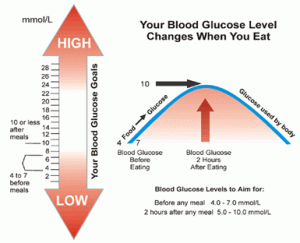What is a Good Blood Sugar Level?
What is a good blood sugar level? This is becoming a question that is being asked more and more often in doctor’s offices and other healthcare facilities all across the globe. In most places heart disease, stroke, and cancer rates are on the decline, but the numbers of new cases of diabetes continue to rise each year. Not long ago, very few people would have ever thought to ask such a question as “what is a good blood sugar level?” but nowadays the question may be the answer to the difference between a long and…

 These days’ people are more aware of their health than ever, and for an ever increasing number of people maintaining healthy blood glucose levels can be a matter of life and death. Even as death and disabilities from cancer, stroke, and heart disease decreases the number of people diagnosed with diabetes continues to grow each year. Diabetes is a metabolic disorder in which the body is either producing insufficient quantities of the hormone insulin which regulates healthy blood glucose levels or the cells of the body have developed a resistance to the action of the insulin which is produced.
These days’ people are more aware of their health than ever, and for an ever increasing number of people maintaining healthy blood glucose levels can be a matter of life and death. Even as death and disabilities from cancer, stroke, and heart disease decreases the number of people diagnosed with diabetes continues to grow each year. Diabetes is a metabolic disorder in which the body is either producing insufficient quantities of the hormone insulin which regulates healthy blood glucose levels or the cells of the body have developed a resistance to the action of the insulin which is produced. 
